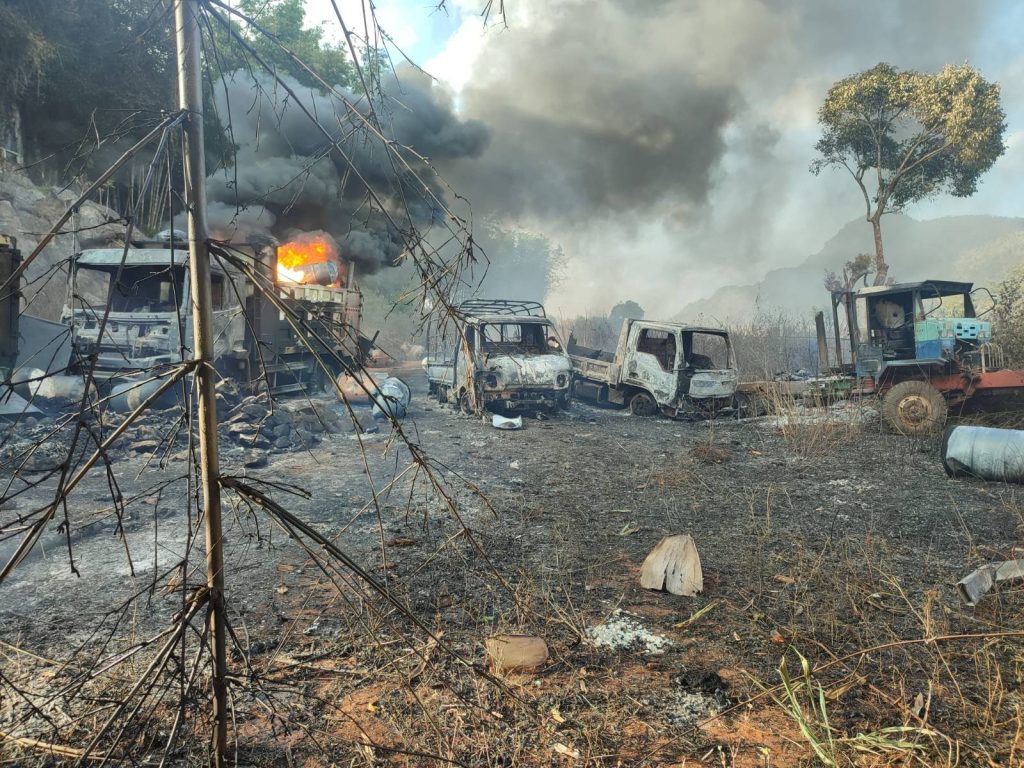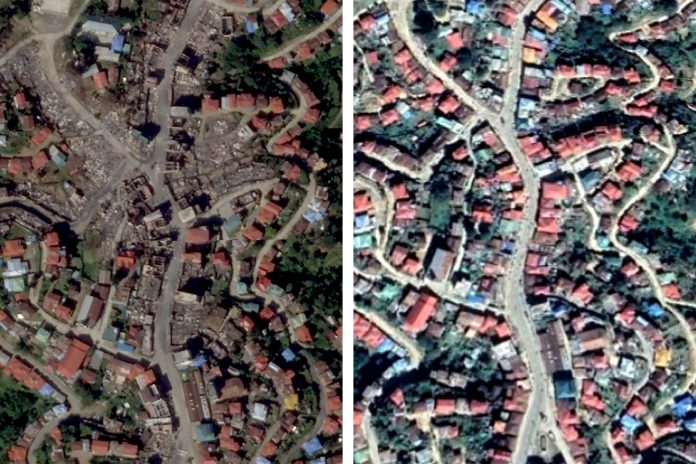Organizations in different countries have launched an international platform aimed to monitor and campaign against bombings in indigenous and rural communities.
The groups decried the increased aerial bombing in countries such as Pakistan, Myanmar, the Philippines, West Papua, Palestine, and India.
Azra Sayeed, chairperson of the Asia Pacific Research Network (APRN), said, “We, as people’s researchers, indigenous people, rural poor, and human rights workers, are sounding the alarm about the significant increase in state-led attacks, particularly aerial bombardments, on rural communities.”
Sayeed said the attacks have resulted in “widespread death, injury, displacement, and destruction”. The majority of these rights violations often go unreported and unaddressed, according to APRN.
Last year, the United Nations signed a Political Declaration against explosive weapons and to protect civilians from the increasing urbanization of armed conflict.
According to UN OCHA, the use of explosive weapons in populated areas “is a major cause of civilian deaths and injuries during armed conflict”.
“Over the past decade, some 238,000 civilians have fallen victim to the use of [explosives in 2021]. On average, 90 percent of victims of attacks using explosive weapons in populated areas are civilians,” it said.
The Karen Human Rights Group (KHRG) revealed that 160 airstrikes have been conducted in Karen State, causing severe harm to civilians in Myanmar. The bombings have destroyed crucial infrastructures such as clinics, schools, hospitals, religious structures, and homes.
Ground shelling has also led to injuries, deaths, and restrictions on the freedom of movement in affected communities.
In India, aerial bombings in Bastar have targeted border regions, allegedly to clear mountains and forests for corporate organizations.
Jiten Yumnam of the Centre for Research and Advocacy Manipur (CRAM) said the escalation of ethnic violence in Manipur, exacerbated by extensive deployment of the Indian army.
The people of Manipur have been resisting extractive investments and large-scale infrastructure projects, resulting in displacements, environmental catastrophes, and the suppression of their fundamental rights.

The West Papuan people have also faced widespread violence, including bombings, as they struggle for independence.
The Indigenous Peoples Movement for Self-Determination and Liberation (IPMSDL) reported a bombing carried out by the military in Nduga, for which the Indonesian government refused to take accountability.
Aerial bombings in the Philippines have dramatically increased in recent years, with indigenous and local farmers being the most affected.
The presence of US military bases in the region has raised concerns among farmers’ groups, who have experienced forced displacement, disrupted livelihoods, and restrictions on movement, according to APRN.
APRN said the “Silenced Suffering” platform aims to provide a community-run space for real-time monitoring of bombings, encouraging victims and witnesses to come forward and seek justice.









